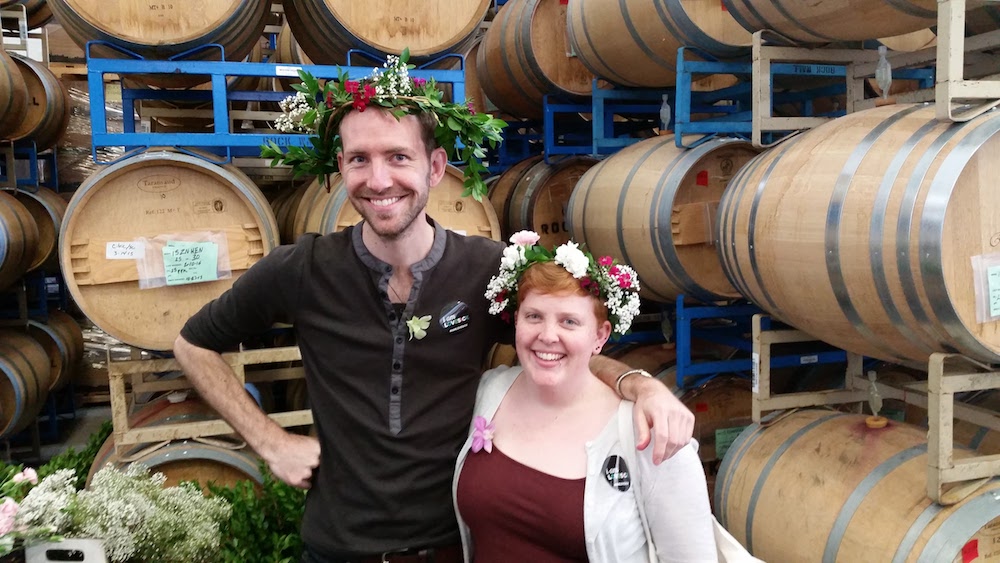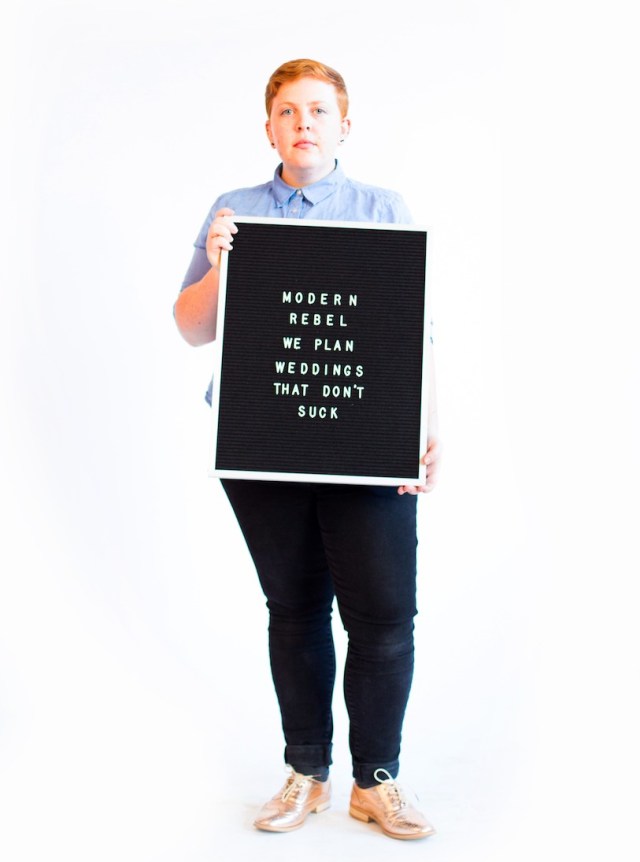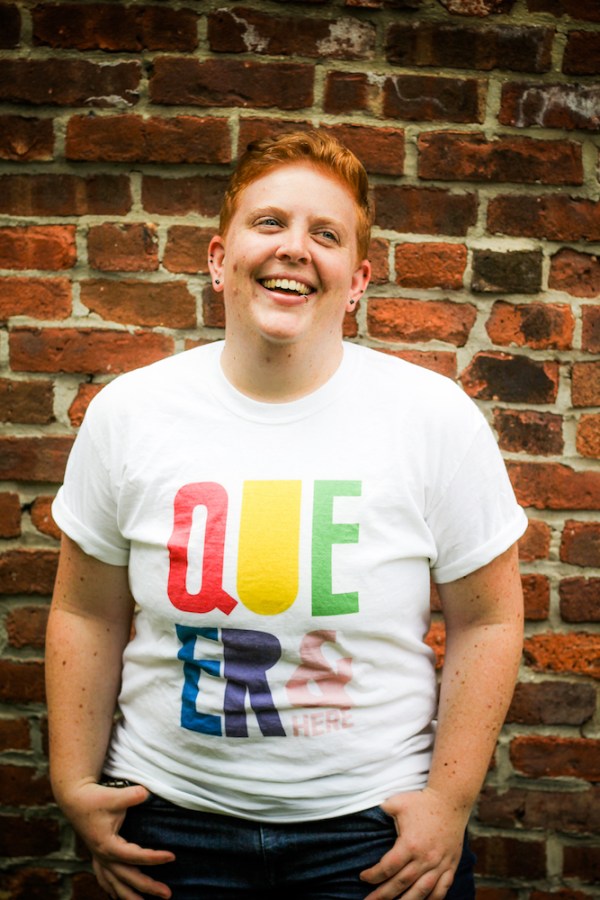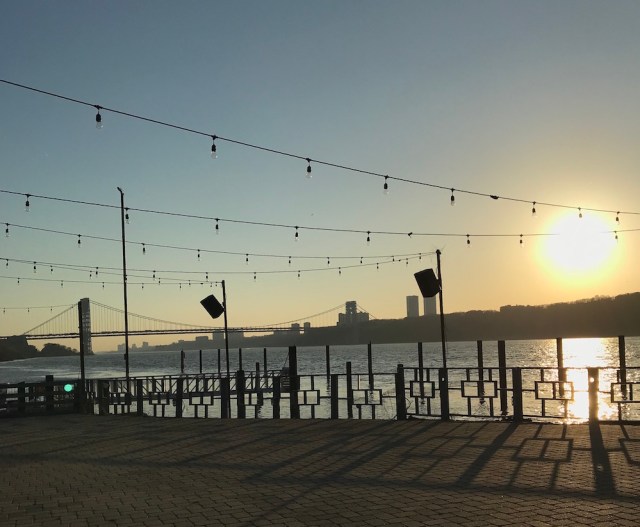I never dreamed of being a wedding planner. When I was six, I wanted to be a zoologist (“They get to wear shorts,” was the reason I gave my mom). After burning out of the non-profit industry barely a year out of college, I left a job where my boss told everyone I was “moving on to pursue [my] passion for events” instead of owning up to their failures as an organization. After I heard her say it, I thought, “Maybe she’s right?”
Once I thought about it, being an event planner was a logical choice: I could combine my love of spreadsheets and logistics, my passion for people, and my need for total control into a job that played into my top love language (gift giving) and my Enneagram Type 2 Helper self. Have I mentioned I’m also a Virgo? It just made sense.
But what type of events to do? I’d tried my hand at fundraising galas through the job I was leaving, but hated asking people for money. I also just hated money in general, so I had zero interest in going corporate. The only thing I actually loved? Well… love.
Queer love, actually. But even at 24, I knew that my dream of being a wedding planner for LGBTQ folks exclusively wasn’t a practical business model. Marriage equality had only been legal for one year; the country was still figuring its shit out. And yet I wanted so desperately to try. Even now, I get a stupid smile on my face when I think about the kind of love that comes out at a wedding — not just between the couple, but from all the people at the party with them. You can hear it in people’s voices during the ceremony, feel it pulsating through the dance floor, and see it in the faces giving teary eyed toasts during dinner.
Whitewashed Martha Stewart cis-hetero bullshit aside, weddings are a moment where people intentionally set aside time to gather their closest family and friends to celebrate each other, community, and finding someone you think is rad enough to spend a shit ton of time and who feels the same about you, too.
Take a minute and think, really think — if you had a wedding tomorrow, who would be in the room with you? Don’t invite the people you don’t like; this is your party. Does your heart fill with joy when you think of all those awesome folks smiling around you? Mine does, especially because, as a queer person whose kind of love has been forced into the closet for so long, making space to announce our kind of love out loud feels like a radical act, and I’ve always been a troublemaker.
It’s hard to break into the wedding industry without starting your own company, and I wasn’t quite ready for that. My first few experiences working weddings with other companies were less fulfilling than I’d hoped; I felt deeply out of place at these events steeped in heterosexual culture. My then-partner tried to console me as I sobbed aloud, “What if I’m not good at this? What if I chose the wrong career? What if people laugh at me in the dress I bought? Why don’t I have any clothes that feel good? How do I pull off professional when nothing fits my body the way I want it to?” And the real question underlying each thought racing in my head: what if I’m too queer for the wedding industry?

It took a terrifying leap of faith a year later when I moved from California to New York City and found my way to the feminist wedding planning company of my dreams: Modern Rebel & Co, which I fell in love with as soon as I opened the interview questionnaire:
1. We love what we do but that doesn’t mean we love every wedding, every marriage, or even the institution of marriage (or the history of it). What marriage tradition are you sick of?
2. Do you believe in marriage equality?
3. Our company is founded on providing a space in the wedding industry for some disruption. We are a fiercely feminist company that believes in “putting the pretty in perspective.” Would you call yourself a feminist? What does feminism mean to you?

Modern Rebel was the first place in the industry where I felt comfortable showing up as my full queer self: 5’1 and chunky with short red hair, nine ear piercings, a lip ring, and a gender identity that can best be described as “Peter Pan.” After feeling like an outsider for a year and a half working for various wedding companies, I never thought I’d get to be part of a team that’s breaking traditions and (literally) saying fuck the rules. I’m a part of a crew of coordinators who make a point to always ask for people’s pronouns as part of a “no assumptions” process. We’re intentional in creating space for our couples to identify with whatever words feel good for them, whether it’s bride, groom, wedding femme or “swiffer” (a real way one of my clients identified, going with a play on “broom” as a combo of bride-groom for those masculine-of-center genderqueer kind of folks). And the wedding party? It could be called just that! Or they could be “best people,” “friends of honor,” “bride’s person,” “groom’s squad,” “wedding VIP” – the list goes on.
And our couples?
Our couples are punk rockers forgoing heartfelt ceremonies and doing a quick standup set before sealing the deal with a kiss. Our couples are walking down the aisle together in silence to honor the parents they lost. Our couples are “strong lady” lesbians getting married in a community bookstore and asking their guests to pick out novels to donate to a literacy charity in lieu of gifts. Our couples are rebelling against the industry being built on the history of women as property to be given away with a diamond ring as a down payment, and instead rewriting the script in a way that truly reflects and empowers each person involved.
While I fall a little bit in love with every couple I work with (and almost always tear up during their ceremony), I wish I got to work with more couples that belong to my community, and felt more connected to my community when doing my job. Though of course queer liberation isn’t connected to marriage for everyone, it feels like there’s no cohesion in the forces trying to bring the queer revolution to the wedding industry, and some days, it feels as if I’m a rebellion of one.

After almost two years working in this industry, for the first time, I finally saw myself in a couple I worked: Susan and Rachel.
I first met Susan at a wedding I’d worked a few months prior — she’d been the officiant, and it turned out she was getting married, too, and needed a little extra help. “We’re very busy,” she told me when describing her and her partner. “But this is important to us — we’re older, and we never thought growing up that this would be possible.”
I loved them immediately. This was the kind of queer love story the industry never shows, the kind I’d always wanted to be a part of.
While I was infatuated with them, the planning process for their wedding was intense; they were two truly High Powered Lesbians™️ who dreamt big. It wasn’t until the day of their wedding, seeing Rachel steal a kiss from Susan, that my anxiety started to calm. Here were two women, so powerful and important in their own ways, who had grown up gay in the ‘60s and ‘70s. After all this time, they’d finally get to stand side by side and pronounce their love and commitment in front of 200 people — family, friends, politicians, world leaders, gay icons, and me, a tender-hearted little queer seeing myself reflected in a partnership for the first time.
As I stood at the back of the ceremony tent and watched them walk down the aisle together, sharply suited in black with femme-ish accessories, I saw more than two people getting married. I saw two women who had waited a lifetime for this moment, one that others can dismiss but that wasn’t even an option for people like me until I was 24, for Susan and Rachel until they were already past 50. So when I heard someone ask, “Why get married at this point?” I knew the answer: because, as Susan said later that night, so many people worked so hard to make this a reality. For people like Rachel and Susan, for people like so many in the room, for people like me, and for all the nieces and nephews and familial offspring in attendance who weren’t even old enough yet to know if they too are of this beautiful and wild chosen family.
Later, after exchanging rings, a kiss and each stomping on a glass under that rainbow chuppah, they stood in the center of the dance floor as the sun set over the Hudson. I stood a few feet away marking off each item on the timeline on my clipboard; Susan held the microphone in her hand. It was time for them to welcome and thank their guests, but as Susan got going, she quickly went off script.
“I got my lesbian card,” she was suddenly saying. I still have no idea how she got there from thank you for joining us.
“I do!” she called out. “To prove it — Alison, where are you? Alison… Alison Bechdel and I played softball together! Softball!” A reluctant Alison Bechdel was thrust into the small clearing where the couple stood, surrounded by their guests. Her mouth spread into a tight smile, shoulders hunched forward in her black suit.
Rachel ignored Alison altogether and yelled at her new spouse, “I have my lesbian card too you know!” Several gay women in the room shouted back at them, “Hey I thought WE were your lesbians!” Susan and Rachel laughed, and said, “You are, you all are.” And it was true.
Everyone in that room was their person in one way or another, and even though I was working as a hired professional, I couldn’t help feeling they were talking to me, too. As I watched the couples pair up to dance, including Alison and her similarly suited wife, I saw my kind of queerness everywhere. I saw butch dykes take the hands of femmes, androgynous folks getting down together, and people of all gender presentations tearing it up on the dance floor. I saw pieces of myself in every corner of the room, people who look and love like me. I wasn’t alone.
And there was Susan and Rachel at the heart of it all, dancing to the band Susan had sworn would play her wedding if she ever got married. As they laughed and moved to the music and worked up such a sweat that their jackets had to come off, I saw a glimpse of the future wedding I hope for, marrying someone I love, the two of us not fitting so strictly into the feminine.

It’s been almost six months since Susan and Rachel’s whirlwind of a wedding. I think about them fondly when I walk along the Hudson River, but honestly, I’m a little scared that I’ll run into them in the city someday. It’s not that I wouldn’t be thrilled to see them; I’d love to hear how they’re doing and where life has taken them. I’m afraid of how they would see me.
Out of my professional persona, I’m an awkward late-twenties queer filled with social anxiety, whose go-to outfit is denim on denim, and is just barely becoming comfortable calling myself non-binary out loud, let alone correct people on my pronouns. It’s this side of myself, this raw realness, that I’m afraid they would see.
So when I received an email from my second queer couple of the year (the aforementioned wedding femme + swiffer), I almost cried.
“Thank you, thank you, thank you! You made our day so much more spectacular than we could have ever imagined! It was so meaningful to us that the person we worked with really understood us — we felt so seen by you and the Modern Rebel team.
While we know that we cannot apologize for other people’s actions or behaviors, we do want to say that we are sorry if you were misgendered by guests or others at our wedding.
We both understand how fundamental it is to be seen and valued, and we want you to know that we see you.”
Being the only non-binary wedding planner I know of is really hard most days, but moments like this make it worth it. I may be alone for now, but I know that I bring a unique and much needed perspective to the industry, and I have the power to make some serious change. I never dreamed of being a wedding planner, but I hope that by being one, some other young tender hearted queer can have that dream someday.







